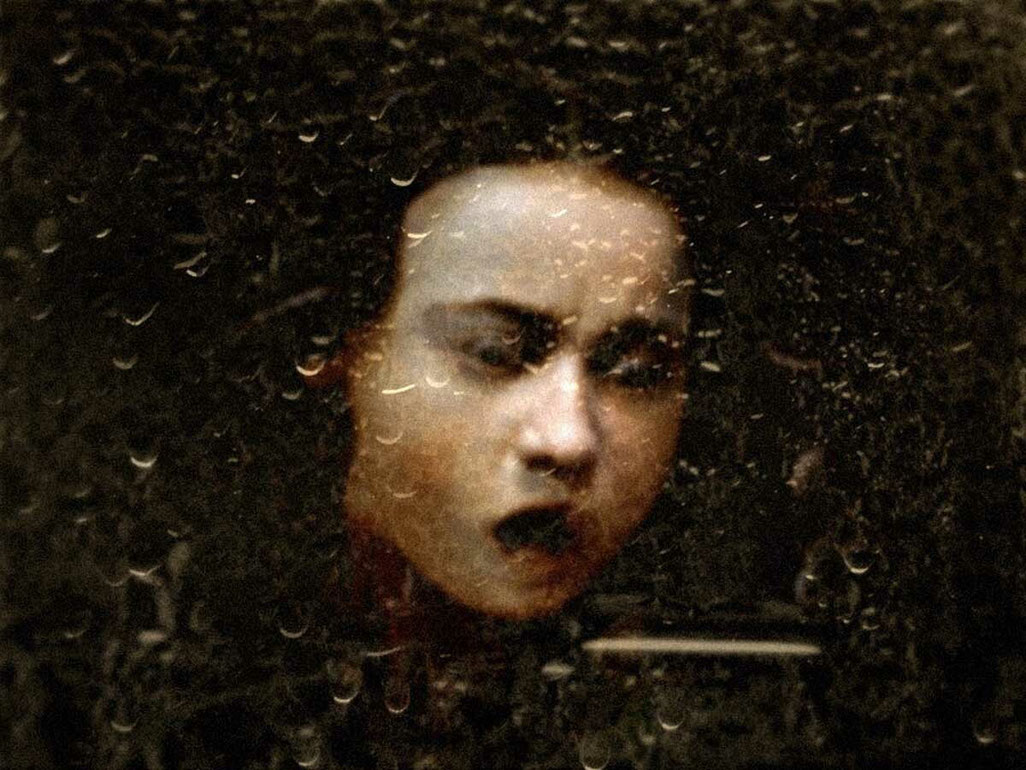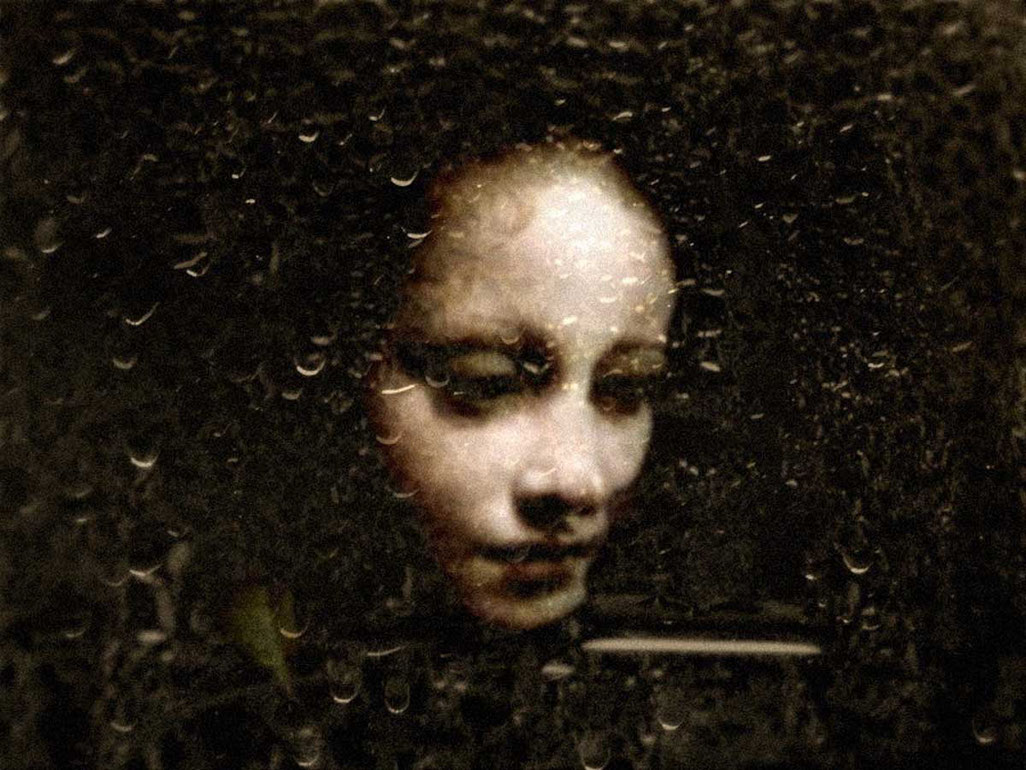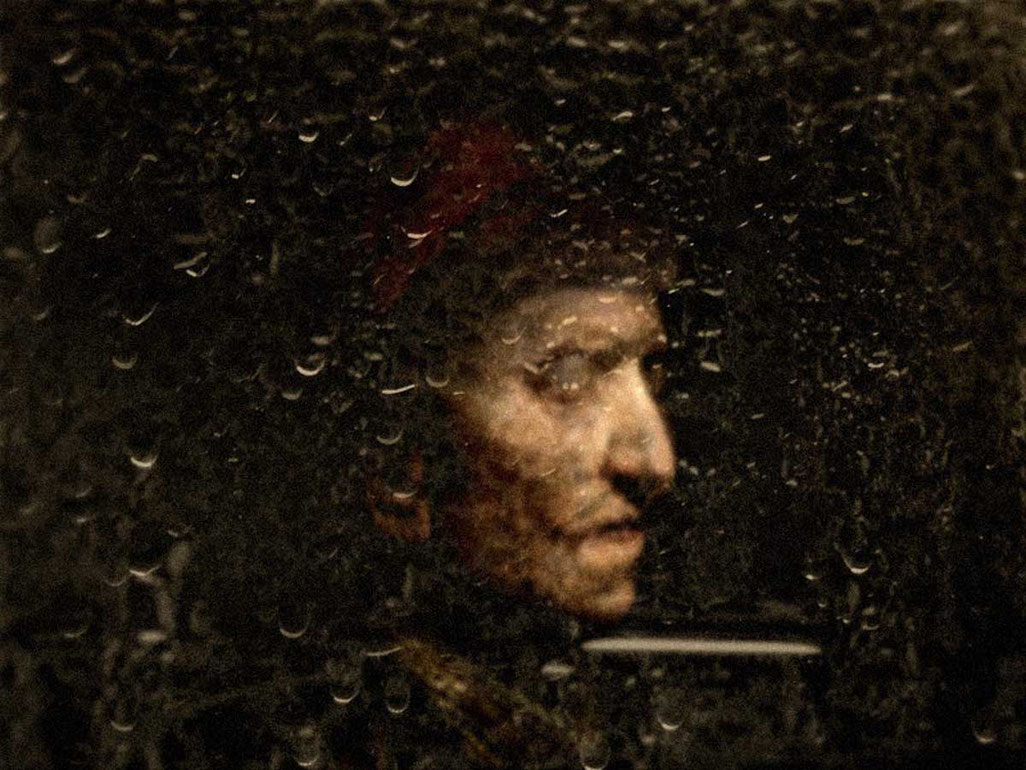In Transit
Over the entrance of the Uffizi Gallery in Florence hangs a digital display indicating the amount of time visitors still have to wait in line. In the high season this can be up to four hours. Still, the majority, after entering the museum, immediately begin to hurry, checking off the highlights as fast as they can. The average museum visitor, according to the hypothesis Reinhold Bidner proceeds from, spends all of six seconds looking at individual paintings.
In his video In Transit Bidner takes up this phenomenon. At first, there´s a painting on the wall and a man sitting in front of it, apparently resting his legs. The camera slowly zooms into the painting until the surrounding space disappears–and it begins to move: The image of a girl by French Classicist William-Adolphe Bouguereau transforms into Rubens´ portrait of his daughter, Caravaggio´s sickly Bacchus, the latter´s head of Medusa, and numerous other works from the history of art. Finally, Bouguereau´s girl reappears, smiling as she peers from the painting, the camera moves away and films the–now different–surroundings. The final shot is of a yawning woman.
During this virtual museum tour the painting is covered by a veil of drops that reflect the movements of Louvre visitors, who are both tired and hectic. Through this formal choice Bidner keeps the viewer at a distance, while at the same time adding a second level: that of the museum visitors who, due to their exhaustion, see nothing.
Together with Richard Eigner, who made the swelling and diminishing soundtrack, Reinhold Bidner successfully created a sensitive study on human behavior in the museum of the 21st century. The audience is invited to take a more intensive and concentrated look at art. (Nina Schedlmayer)
Translation: Steve Wilder
A moving image. And a story about portrait-paintings being tired of exhausted museum visitors. (production note)
Go to film´s HOMEPAGE.
In Transit - texte française
À l'entrée des Offices, à Florence, un affichage numérique indique au public faisant la queue le temps d'attente qui lui reste. En pleine saison, cette attente peut durer jusqu'à quatre heures. Or, à peine entrée, la grande majorité des visiteurs s'efforce de passer en revue le plus vite possible les incontournables du musée. Six secondes à en croire l'hypothèse initiale de Reinhold Bidner est le temps que consacre le visiteur moyen à un tableau.
Dans sa vidéo intitulée In Transit, Bidner analyse ce phénomène. Plan d'ouverture : un tableau accroché au mur devant lequel est assis un homme, visiblement en train de se reposer.
La caméra fait un lent travelling avant sur le tableau jusqu'à ce que l'espace environnant ait disparu et le tableau se met à bouger : le Portrait d'une Jeune Fille de William-Adolphe Bouguereau, grand peintre de l'académisme français, se transforme tour à tour en portrait de la fille de Rubens, puis en Jeune Bacchus malade de Caravage, en Tête de méduse de ce dernier ainsi qu'en une quantité d'autres portraits appartenant au corpus de l'histoire de l'art avant que, finalement, le sourire de la jeune fille de Bouguereau ne réapparaisse à l'écran ; la caméra s'éloigne et filme l'environnement, qui a changé. Plan final : une femme qui bâille.
Pendant tout ce parcours virtuel du musée flotte sur le tableau un voile de gouttelettes où se reflètent les mouvements des visiteurs, fatigués ou fébriles, du Louvre. Par ce choix formel, Bidner tient le spectateur à distance, tout en instaurant un second niveau : celui du public venu regarder, mais tellement sollicité qu'il ne voit rien.
Conjointement avec Richard Eigner qui a élaboré le son croissant et décroissant du film, Reinhold Bidner a réalisé une étude toute en finesse sur le comportement des personnes dans le musée du XXIe siècle. Une étude qui incite le public à poser sur l'art un regard plus dense, plus attentif. (Nina Schedlmayer)
Traduction: Françoise Guiguet
In Transit
2009
Austria
5 min 50 sec



